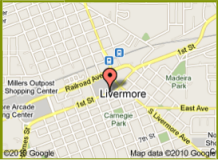Vitamins C and E reduce pre-eclampsia
When pregnant, women can have elevated blood pressure, a condition called pre-eclampsia, which may require inducing labor or surgical delivery. Doctors said antioxidants may lower chances of pre-eclampsia, and in this study, 110 pregnant woman with low levels of antioxidants took 1,000 mg of vitamin C plus 400 IU of vitamin E per day, or a placebo, from eight to 12 weeks pregnant through two weeks after giving birth. Nine of the woman developed pre-eclampsia, with eight of the cases in the placebo group, and one in the antioxidant group. Doctors concluded that women who are low in antioxidants may reduce the chances of pre-eclampsia by taking antioxidants during pregnancy.
Mom’s folate levels may reduce emotional problems in children
Doctors know that low folate levels in early pregnancy increase chances of neural tube defects, and wanted to test for a link to behavioral and emotional problems in children. In 3,209 Dutch women, researchers measured folic acid in the diet and folate levels in early pregnancy, and then followed up on children’s emotional and behavioral problems at age three.
Compared to kids whose moms had good folate levels, those whose moms were deficient in folate before pregnancy were 57 percent more likely to develop emotional problems by age three. Compared to children whose moms started taking folic acid supplements when pregnant, those whose mothers started taking folic acid later during pregnancy, or who did not take folic acid at all were 45 percent more likely to have emotional problems. The Netherlands does not require manufacturers to fortify foods with folic acid.
Reference: Journal of Obstetrics and Gynaecology Research; May, 2012, Electronic Prepublication
From the September 2012 newsletter
